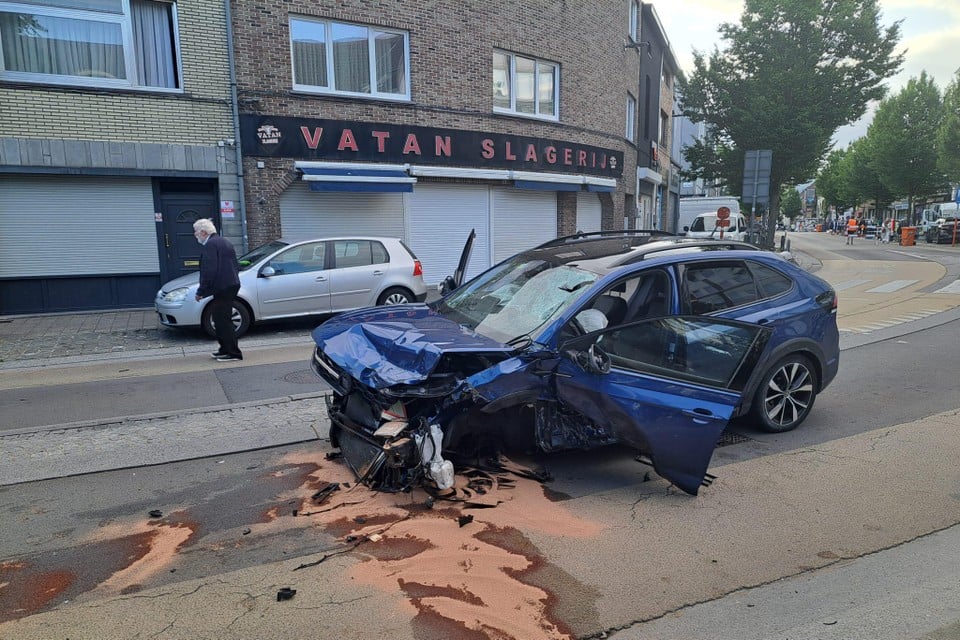It teaches to say no: it is a struggle with time. Either the information or dealer – we are to get to them rather

He makes lectures in schools for free.
Topoľčany. Drugs do not only change people’s lives, but also their form and young people meet them earlier. This is one of the reasons why Peter Remper He decided to give prevention years ago.
Over the past few weeks, several elementary and secondary schools in Topoľčany have gone through, where he spoke openly about what they can cause drugs, not only the body, but also the mind and interpersonal relationship.
He has been dedicated to drug lectures since 2009, today he has been organized by a civic association without drugs he co -founded in 2019. It talks about the harmfulness of alcohol, chewing tobacco or marijuana simply, but without illusions. He shares the facts and experiences with the pupils, which he has gathered over more than 8,000 lessons.
He explains why it is better to say « no » before it’s too late. As he says, the problem with addictive substances persists – and his point of view has worsened in recent years. New forms of use such as chewing tobacco appear, and it is the school youth that is extremely vulnerable to them.
In an interview, he explains what motivates him, why he says he is not a legalization of a solution and how the growing interest of children and teachers perceives this topic.
What are your lectures about? Do you focus on specific substances?
The topics are diverse – we do alcohol, marijuana, ecstasy, but above all we explain what drugs are doing to the body. As they destroy vitamins and nutrients why a person has a monkey headaches. We also talk about how drugs affect thinking, emotions, behavior. I try to explain things simply and practically.
Do you rather work with facts or even practice stories?
Both of them. I have heard a lot of stories from pupils who have confirmed to me that what I say is agreeing with what they have experienced, whether personally or as witnesses in the family or around.
Some children live with parents who are addicted or sitting at school and their parent is sitting in drug prison. The pupil knows what it is about. Maybe he has already experienced some of the situations. Not as a drug addict, but as an observer.
How do pupils respond to your lectures? Are they interested in the topic?
Mostly yes. During the lectures in Topoľčany I was pleasantly surprised by their interest. They communicated, were willing to listen and learn something. I had the opportunity to read about 120 of their reactions after the lecture and felt that the topic appealed to them.
In anonymous feedback, many wrote that they learned something new. When a pupil at the end of the lecture says he confirmed that he does not want to try drugs, it makes a lot of sense for me. However, it depends a lot on the level of prevention in a given city or school.
If a preventive lecture is made for only one year, say eight, and the others, such as sixth, seven or ninths, will not get to the topic at all, there is an information hole that is a space for those selling drugs. It is actually a struggle with time – either information or drug dealers will either get to a young person.
Do you see differences between regions?
Yes, there are differences. For example, Sereď, Nitra Whether Trnava can be more problematic in this respect than other cities. But there is no need to make illusions, the problem of drugs also affects places such as Topoľčany.
The topic concerns a fairly large percentage of people in our society, although it may not be in personal experience. People do not praise on social networks by my child depending on drugs, my son is an alcoholic. We all take pictures only when we are pretty and everything works. Of course, there are also exceptions.
In the interview you can also read:
- What the topic of lectures would be appropriate today,
- How much will he make a year of lectures,
- Why not asks pupils about their own drug experience,
- What does he think about legalizing drugs in the country?
You are also dealing with chewing tobacco. Is it such a big problem among young people?
Yes, the requirements for lectures on chewing tobacco are common. Six to seven years ago, this topic originated, then it had a little attenuation and now it exploded sharply.
Do you work with experts in preparing lectures? Psychologists, doctors, educators?
Not directly. I work with teachers when the school invites me, they often tell me what observations they have. You could say about alcohol, about this topic, we have such a problem. As they found out, I don’t even look for it. I can say about the topic.
So schools can choose the topic of lectures?
Yes. They have the option of choosing and in one lesson they often take over several topics. I often return to the second term. Honestly, I’d rather talk about something more inspiring than drugs, but it’s a serious problem and we need to talk about it.
I think there are also much more interesting topics, such as human rights. Great theme. But what are human rights? Try asking people. Few people name more than one. We just don’t know.
So is it possible that a new civic association will be created in human rights?
Everything can arise, but the question is how it will work in practice and especially whether there will be people who will be willing to do lectures.
For example, I have recently heard that a lawyer with a lecture on drugs, but in terms of criminal responsibility, spoke at one school. And that’s great. Maybe a few days ago she defended someone before the court, someone who was charged with possession or sale of drugs. And the young man finally got a concrete punishment.
The police also do such lectures, which is very important. It is well complemented by my part where I talk about what drugs do to the body, thinking, emotions. They will explain what is in danger of the law. A judge would be able to perform with a similar interpretation. I have already met it, but it’s quite rare.
I try to prevent one at all in prison and the like. My lectures are about why drugs are harmful to the body, psyche, emotions, and especially whether one even needs narcotic drugs to live. And when I manage to say that the child says, « No, I don’t need it, » that’s a valuable goal.
The collision of a car with a van blocked the road in the village. Firefighters intervened on the spot Read
Whether they close a person for ten years is interesting for the media. Writing that they have closed someone for ten years for holding marijuana, this is an article that may be interested in a person. But it is the point that he does not get to this level.
Because the truth is that once someone gets to prison, it costs a lot of money. The prison is not free. That’s a little bit my touch. And it should affect everyone who pays taxes.
Is the lecture your main activity?
No, I do it alongside my work that feeds me. I do lectures for free, in my free time. I always find about six months during the year, during which I do this. I go to children all over Slovakia, be it schools in the south, east, Topoľčany or Orava.
How much do you make them a year?
Last year I made them about 440, which is less than usual. Previously, I normally made 550 to 600 lectures per year.
Do you think the kids take it really seriously? Do they not only take it as another « compulsory » lecture?
Clearly it is not 100 %. There’s some sieve. But from the anonymous answers of the pupils after the lecture I know that the lecture helped them to decide, to confirm not to use narcotic drugs. The success of lectures is 99.2 percent.
Do you have any example or story story that has particularly affected or confirmed that this activity makes sense?
At the moment I do not think of a particular story. But for me, it is also of great importance for a pupil to write to me at the end of the lesson that he decided not to take drugs thanks to the lecture, or he confirmed that he did not want to take drugs.
Because even the confirmation can be demanding today. We live in a society where people often cherish only because they meet. And then it is difficult to explain that alcohol is not good.
Parents should be an example. It does not have to be treated for each visit, a different drink can be offered. The traditions are as they are, but children perceive it.
I give pupils a comparison. I show them how a person is falling when he drinks for more years. He started and it made him feel good for a while, he was stimulated maybe a year. In the second year it is different, in the third he drinks out of boredom, and needs double to feel something at all. Finally, he can’t even work without alcohol, he can’t start without alcohol.
[email protected] to help you.









